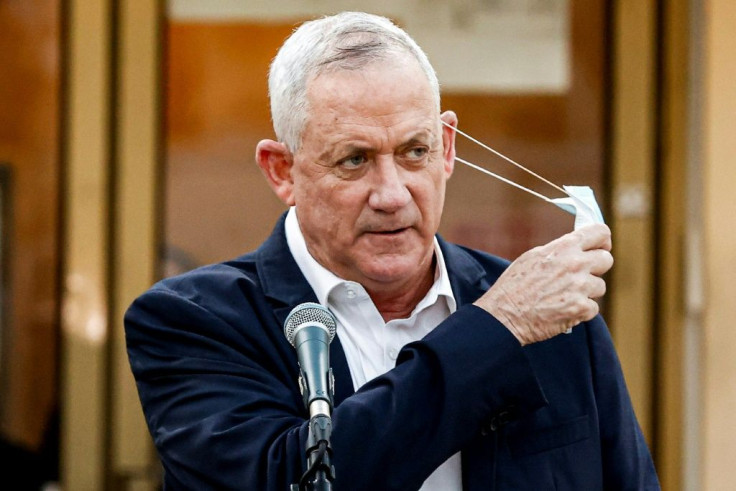Israel Slides Toward Fourth Election In Two Years
Israel was headed Tuesday for its fourth election in less than two years, with parliament set to dissolve at midnight after lawmakers rejected a last-ditch effort to salvage Prime Minister Benjamin Netanyahu's fractured ruling coalition.
Netanyahu's government has been inching towards collapse for weeks and now the right-wing incumbent looks set to face a re-election battle amid the pandemic and as his long-awaited corruption trial gets under way next year.
His main coalition partner and political rival, Defence Minister Benny Gantz, has accused the premier of dishonesty and placing his personal needs above the good of the nation as it grapples with Covid-19 and its impact on the economy.
The coalition led by Netanyahu's Likud and Gantz's centrist Blue and White party has until the end of the day to pass a 2020 budget, or the parliament will be forced to dissolve.

Uri Michael, spokesman for the Knesset legislature, said that once the clock ticks past midnight there is no stopping the election call.
"There is a law that says the Knesset dissolves tonight at 12:00 am" if the budget is not passed in time, he told AFP.
The president of the Israel Democracy Institute think-tank, Yohanan Plesner, told journalists Tuesday that "after midnight there are no options".
Even a last-minute change of heart would probably be insufficent to clear all the necessary legislative stages in the few hours remaining, he said.

It was overwhelmingly likely that at midnight, the Knesset will be "dispersed and disintegrated and nothing can be done about it," he said.
Israel's three-year coalition deal stipulated that Netanyahu serves as premier for 18 months, with Gantz, currently the alternate prime minister, taking over in November 2021.
Gantz has demanded the government pass a budget covering both 2020 and 2021, arguing Israel needs stability.

But Netanyahu has refused to endorse a 2021 budget.
That, according to his critics, was a political tactic to keep the coalition unstable and make it easier for him to sink the government before he must hand power to Gantz.
Late Sunday, Blue and White said it had an agreement with Likud on a bill to buy more time to pass both the 2020 and 2021 budgets.
There had been indications early Monday that the measure would pass.

But after yet another war of words between Netanyahu and Gantz, parliament rejected the bill early Tuesday by 49 to 47 votes.
Lawmakers from Likud and Blue and White both voted against the coalition proposal.
Gantz, currently in precautionary coronavirus quarantine, was unable to vote.
Netanyahu and Gantz could both be politically hurt through a new vote, expected as early as March 23.
Political commentators have said Netanyahu always planned to force an election before he would have had to hand power to Gantz but that he would have preferred it closer to summer.
That would have allowed more time to vaccinate the public against Covid-19 and hopefully push Israel's economy towards recovery.
A March election will also likely force Netanyahu to campaign while appearing in court through January and February for his trial on charges of bribery, fraud and breach of trust.
He is accused of accepting improper gifts and seeking to trade favours with media moguls in exchange for positive coverage, but denies wrongdoing.
"These elections are too soon for (Netanyahu), with a certain lack of control," analyst Matti Tuchfeld wrote in Tuesday's Israel Hayom newspaper.
Netanyahu also faces a new challenge from influential right-winger Gideon Saar, who has left the Likud to form his own party.
Multiple polls suggest Saar could peel substantial support away from Netanyahu if elections were held soon.
Meanwhile, Gantz's political fortunes appear to have plummeted.
Blue and White fractured in April when he decided to strike the deal with Netanyahu and recent polls suggest the party would win only a handful of seats if elections were held soon.
Gantz has always maintained he joined a Netanyahu-led government to spare the country an election while the pandemic was ramping up, not because he trusted the premier.
"I wasn't afraid to do the right thing several months ago, and I'm not afraid to do the right thing now," Gantz said Tuesday, declaring his camp would head to a vote with its "head held high".
© Copyright AFP {{Year}}. All rights reserved.




















